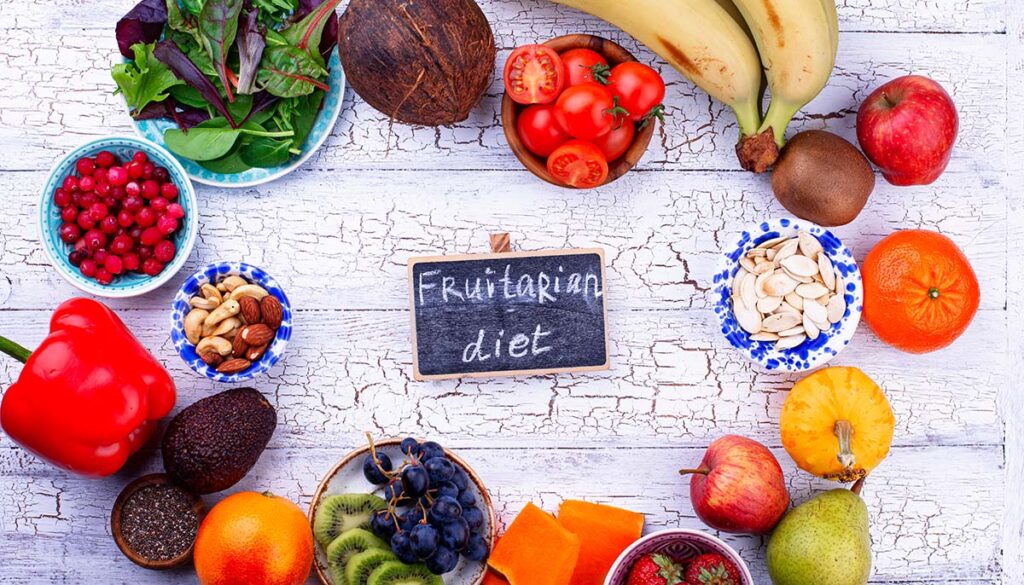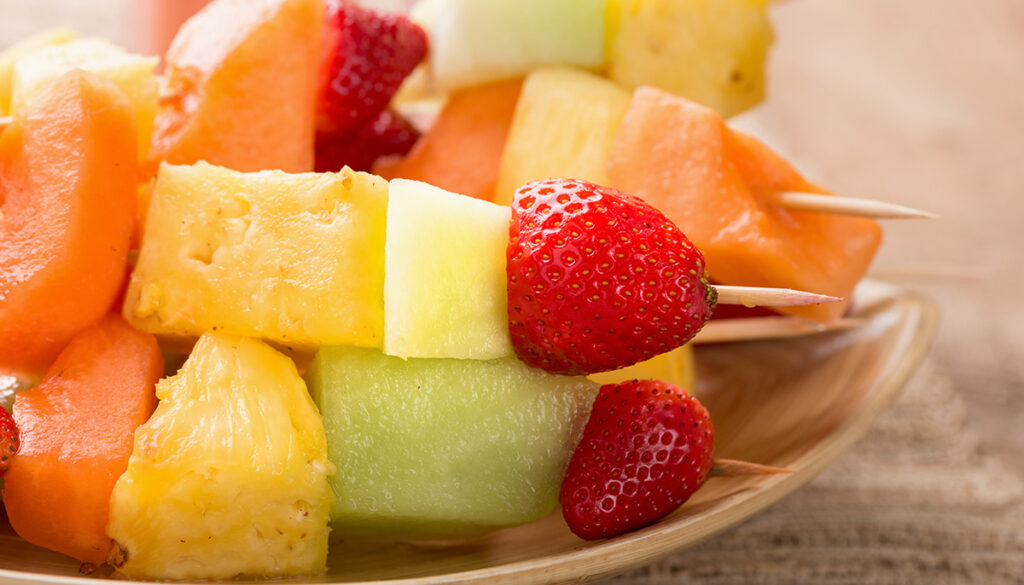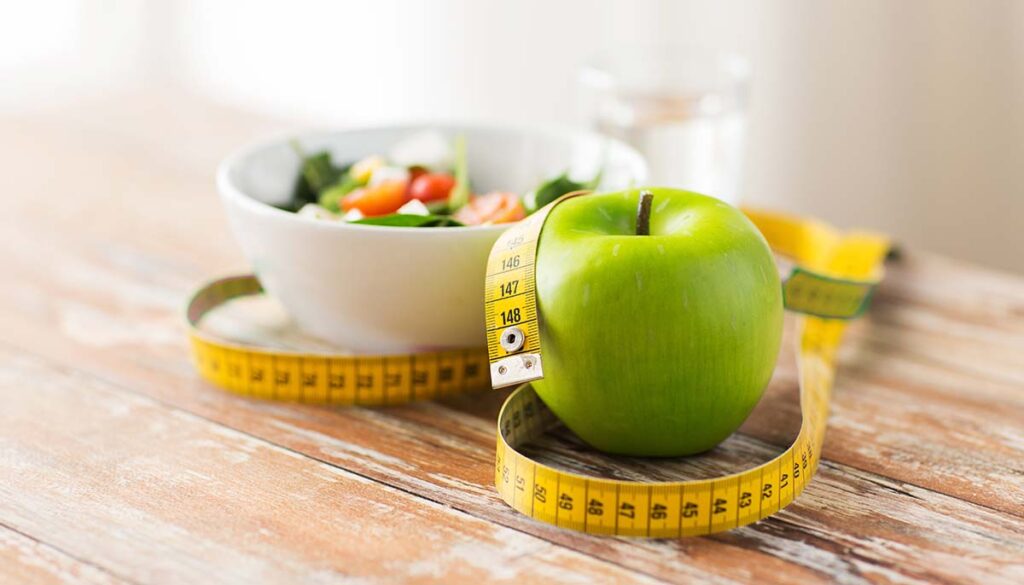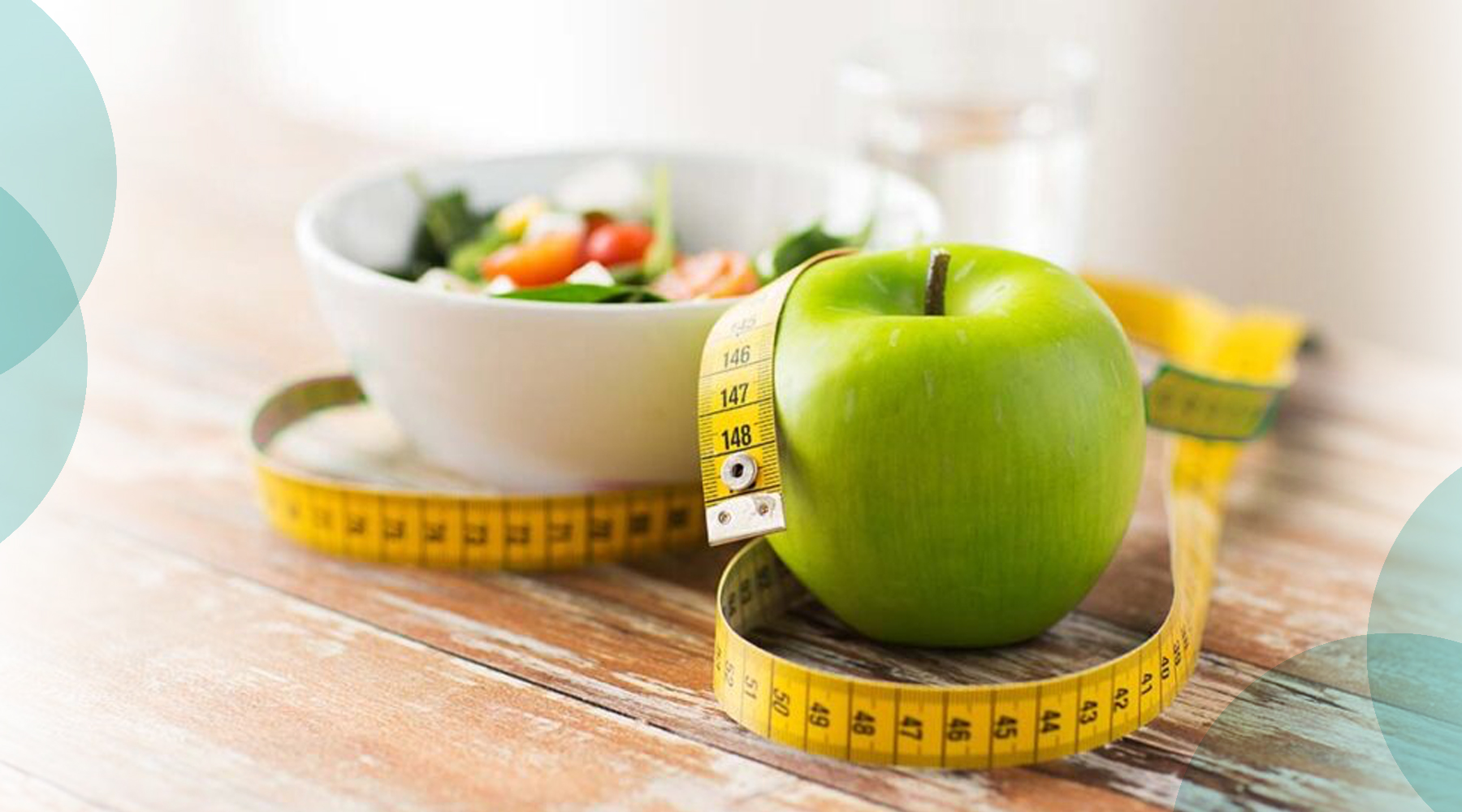Eating fruit is undoubtedly a good dieting practice. Fruits are a wonderful source of vitamins and minerals. They’re also high in fiber and antioxidants. But what happens if you choose to eat mostly fruit and hardly anything else? Let’s talk about the Fruitarian Diet.
In the world of extreme dieting, becoming a fruitarian is high on the list of extreme diets. Dieticians often note that the fruitarian diet excludes one too many of the nutrients our bodies need. Even still, some people swear by it. With that said, let’s not forget that wildly restrictive fad diets have been incredibly popular (and sometimes downright dangerous) throughout the years. And so, it’s always important to have a well-rounded understanding of exactly what we’re signing up for before swearing off certain foods or increasing our intake of others.
No matter how you slice it, the fruitarian diet is one of the most restrictive diets in existence. And I’m not here to endorse it or support it. Nor am I going to condemn those who love it. Everyone is different, after all. The fact is, only you can decide which eating habits are best for you. Nevertheless, a balanced diet is always important.
Whether or not weight loss can be guaranteed with this plant-based diet, malnourishment to some degree is practically inevitable. Or rather, not getting enough of what the body needs is always a very big risk for new or practicing fruitarians. Here are a few more things worth noting about the fruitarian diet, according to dieticians.
Rules of The Fruitarian Diet
As you might’ve guessed, the fruitarian way of eating is a lot how it sounds. In fact, this diet is a highly restrictive vegan diet with very few loopholes. That’s likely why its popularity has been dwindling, as of late.
As the name suggests, those on this plant-based diet are basically limited to raw fruits only, with all animal and dairy products excluded without exception. And the rules only get stricter from there. Here’s what to know about what you can and can’t eat on the fruitarian diet.

Per Healthline, “other types of food, such as grains, legumes, and tubers, are severely limited or eliminated completely. Cooked food of any kind, including cooked fruit, is avoided.” But not everyone sticks to the “only fruit” path. Some fruitarians choose to incorporate vegetables, dried fruits, nuts, and seeds in moderation.
When I first learned one of my friends had become a fruitarian, my immediate question was “what about protein?” They acknowledged that figuring out their protein intake was one of the trickiest parts, as the fruitarian diet is practically absent of it. So like many fruitarians, they choose to eat mushrooms as well. And thus far, she loves it.
With any diet, it’s important that you figure out what works for you and pay attention to how your body responds. What works for one person may not work for another, especially with a diet that’s highly restrictive like this one.
What Are The Potential Benefits?

Solid evidence exists that plant-based diets have tons of health benefits. And so, for its obvious health benefits and environmental sustainability, some people have turned to (and stuck with) the fruitarian diet.
However, the health risks might be too great. Due to how much you must cut out, certain deficiencies will become easier to develop. The fruitarian diet is severely lacking in essential nutrients, like protein, B vitamins, omega-3 fatty acids, fat, and calcium. On top of highly possible malnourishment, your body could also go into starvation mode.
Even dieticians who acknowledge that benefits do exist stand by that the cons still outweigh the pros. Many say it’s undisputably bad for you. If you’re interested in trying it anyway, dieticians advise easing in gradually and not being too restrictive right away. Slowly move away from your current eating habits so your body has a chance to adjust.
Read More: Savvy Uses for Food That’s About to Go Bad
Can a fruitarian diet be healthy or help you lose weight?
Obviously, fruits are a healthy and natural diet staple. However, they also contain significant amounts of natural sugar. Fruits consist of fructose, vitamins, and antioxidants. Many are known for being incredibly high in vitamin C and beta-carotene. Many studies have shown that fruit may even lower one’s risk of cancer and various other chronic diseases.
And chances are, there are already more hidden sugar sources in your diet than you may realize.
Depending on how your body works, there’s no guarantee you will lose weight as a fruitarian. If you are dieting, it’s often recommended that you incorporate whole fruit into a balanced diet. Not to mention, it’s often advised to consume even natural sugar in moderation. Generally, dieticians say to keep your fruit intake between 25% and 30%, maximum. Otherwise, you may see a spike in your blood sugar or other nutritional imbalances.

The Mediterranean diet or a pescatarian diet are often considered healthier alternatives for weight loss. Most notably, you’ll still get a healthy portion of fruits and vegetables with both. You’ll also be able to eat other, nutrition-rich plant-based foods like nuts, seeds, legumes, plant-based oils, and certain whole grains. And of course, you’ll have the healthy fats we need for balance, energy, and weight loss.
So can you lose weight on the fruitarian diet? It’s possible. However, dieticians say that you’ll likely be losing muscle mass too due to a drastic lessening of protein intake. And in the world of long-term diets, it’s not typically considered to be a realistic diet plan.
Also, there’s also a chance you’ll actually gain weight. As noted, fruits are loaded with natural sugars. So while some may lose weight with the fruitarian diet, others may notice significant weight gain after consistently eating large portions of fruit for a while. If you are not eating enough of what you need, there’s a chance of going into starvation mode. If this happens, your metabolism will slow down and your body will begin storing what it can for energy.
Typically, It’s Not Recommended. Here’s Why
With a fruit-based diet, the risk of several health problems is always there. According to dieticians, many common issues are anemia, fatigue, and other functioning issues called nutritional deficiencies, which are fairly common for those on this diet.
In a nutshell, your body needs more to properly function than fruit alone can provide, no matter how healthy you might naturally be. When it comes to iodine, vitamin D, vitamin B12, calcium, and omega fatty acids, fruitarian diets fall short. Without proper nutrition, fruitarians are at a greater risk for anemia, lethargy, serous immune system dysfunction, and bone density issues like osteoporosis and osteopenia.

Due to the amount of sugar consumed, developing diabetes is also a possibility. Too much sugar is not just a source of unwanted weight gain, it can negatively impact blood sugar levels. For those who are genetically predisposed or prediabetic, dieticians say the fruitarian diet could actually be dangerous. It’s also not an advised diet for those with pancreatic or kidney disorders.
As discussed, your body may also go into starvation mode and you may find yourself craving things you’ve completely cut out. That’s nothing to be ashamed of. Because you are deprived of fats, proteins, and certain vitamins, your body might start begging for things that it needs, no matter how those cravings tend to manifest. And where there is food obsession, there’s a risk of disordered eating.
It’s useful, with any diet, to check in with yourself and see where you’re really at. Do you feel low energy? Always hungry? Moody? You may need to tweak your diet. And let’s not forget, that where there is high sugar, there is a higher risk of tooth decay. So if you’re switching over to a fruit-only diet, take extra care of those pearly whites.
If You’re Considering This Diet, Talk to Your Doctor First

No matter what diet or nutritional changes you might be considering, you should always start by talking with your doctor or scheduling an appointment with a trained dietitian. They’ll be able to help you set up a plan that meets your specific health needs. They may also advise against diets like this one.
While I’m sure it goes without saying, the more restrictive the meal plan, the more caution you should proceed with. Fad, fast, or yo-yo diets should be a thing of the past. Weight loss should never be the only goal. Your diet is a part of your life, not just a means to an end. By treating your body with consistent care and kindness, you’ll get the kind of results that last. Not to mention, healthy change is often gradual, not drastic.
For your overall well-being, it’s important to craft a diet that you can depend on that allows you to feel and function at your best. No matter what you decide, aim to find a diet that you can stick to long-term in a healthy, realistic way.













